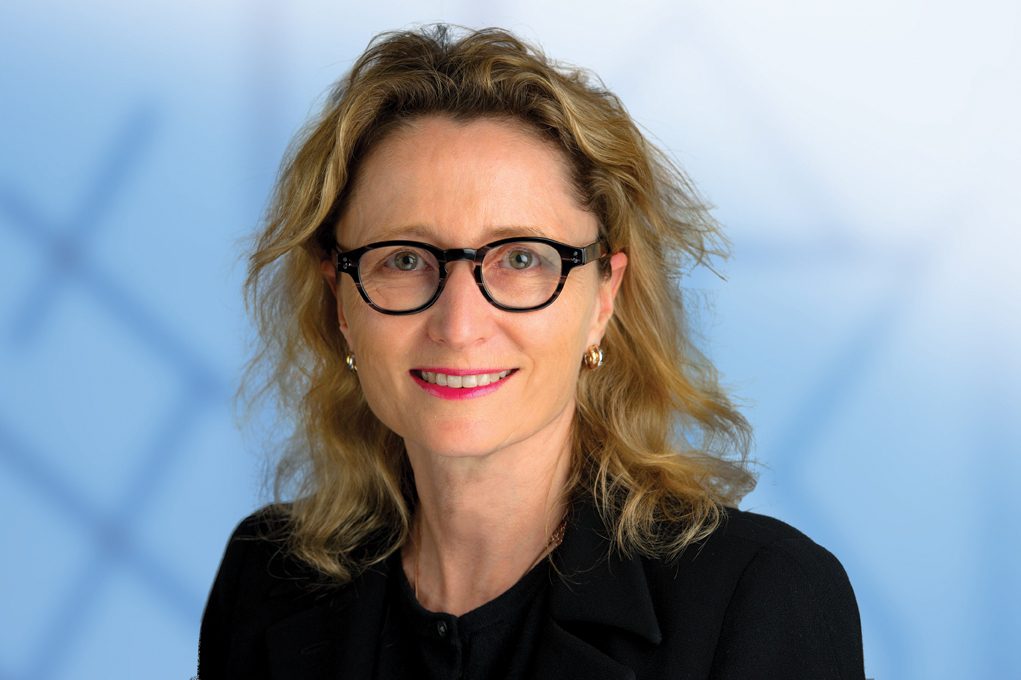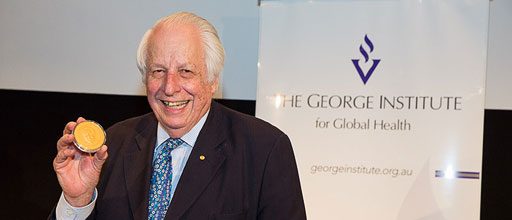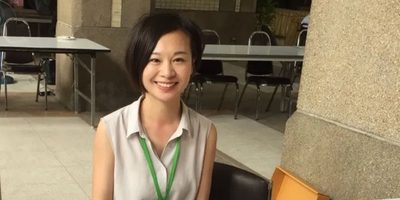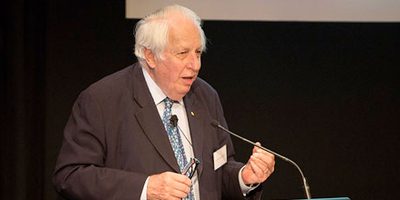Sir Gustav Nossal AC CBE, an internationally renowned scientist and one of Australia’s national living treasures, delivered the 2014 John Yu Oration hosted by The George Institute for Global Health, highlighting the important strides already made and required in the future to fight against infectious diseases.
Following his evening speech “Progress in Global Immunization” at the State Library of New South Wales, in which he emphasised the importance of development aid and trade as vital for developing countries to advance, Sir Gustav was recognized with the John Yu Award.
Prime Minister Tony Abbott provided a recorded message of congratulations to Sir Gustav, Dr John Yu and for The George Institute’s leadership role in Australian medical research excellence.
The George Institute “is dedicated to improving the health of millions worldwide. It’s a great endeavour,” said the Prime Minister. “Medical research plays a critical role in the treatment, cure and prevention of disease. The Government is helping…by establishing a 20 billion dollar medical research fund. Our hope is that we can support more medical researchers to reach the heights achieved by Australians like Sir Gus.”
Describing the multi-year efforts to prevail against infectious diseases in often extremely challenging, poverty stricken and conflict states, Sir Gustav said: “It’s a long game we’re playing – this is tough stuff.” Sir Gustav emphasised the importance of continued global and Australian support for the multi-billion dollar programmes to develop vaccines with the potency to prevail, at a cost and treatment level that is practical, adding that in addition to science, “the old fashioned quarantines and public measures work” and must be part of the strategy.
The George Institute Board Chairman, Mike Hawker praised Sir Gustav’s leadership and contributions to Australian science in his opening remarks. He said that the John Yu Oration and Award was created to help tell the story of The George Institute, one of Australia’s “great untold success stories” because its “research is used globally.”
In his remarks, Sir Gustav spoke of the decades of work that have gone into finding vaccines for malaria, polio, TB and HIV-AIDS, all of which are at varying stages of success. But Sir Gustav also spoke of the great successes, for example with polio almost being eradicated and malaria cases down 45% since 2000. And he said that international efforts led by the Gates Foundation must continue to be supported, particularly in aid budgets. Sir Gustav concluded by asking whether rich countries were doing enough given that official development assistance had peak in 2011 but had since fallen by six per cent.
Master of Ceremonies Philippa McDonald, from the Australian Broadcast Corporation (ABC), led a wide ranging Q and A discussion with Sir Gustav and The George Institute Principal Directors Professor Stephen MacMahon and Professor Robyn Norton. Both Professor Norton and Professor MacMahon emphasized the importance of technology innovation to healthcare solutions and The George Institute’s role. For example, Professor MacMahon said that in India, “we can use village healthcare workers using mobile technology to provide absolute quality care for less cost, about one twentieth the cost of doctors.”
Professor Norton added” “It’s really about how we educate the public. The use of social media and how we bring this into play to help ”will increasingly be important.”
During the programme, Professor Robyn Norton announced a new fellowship programme to honour The George’s distinguished former Chair, Dr John Yu AC. Three prestigious three-year awards will be created and an award will be made annually to the best and brightest of the next generation of healthcare researchers from Asia, allowing them to complete doctoral studies in Australia at The George Institute and the University of Sydney. Candidates will be sought who display strong leadership qualities, with a passion for solving the health and healthcare challenges facing low and middle income countries in the 21st century. With the ability to participate in research at any or all of The George’s offices in Australia, China, India and the UK, these fellowships will provide an opportunity for students to complete a truly global health doctorate, with mentoring by The George’s leading world-class researchers.
In 2015, the John Yu Oration will be held in Beijing, China.











